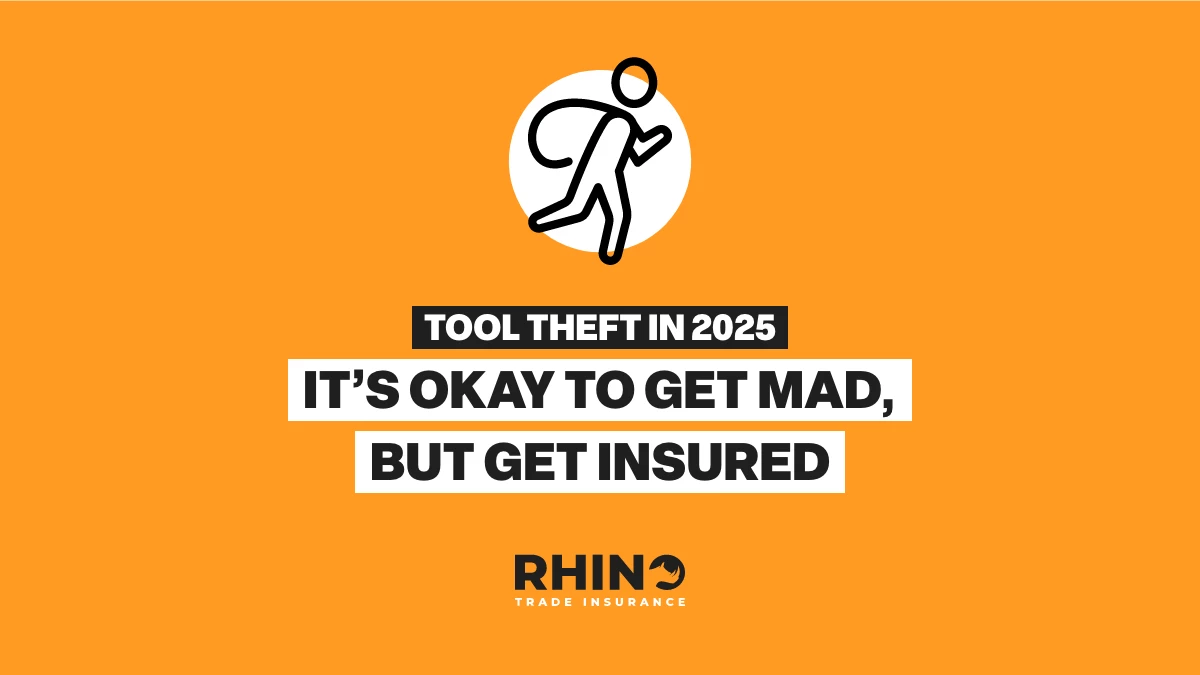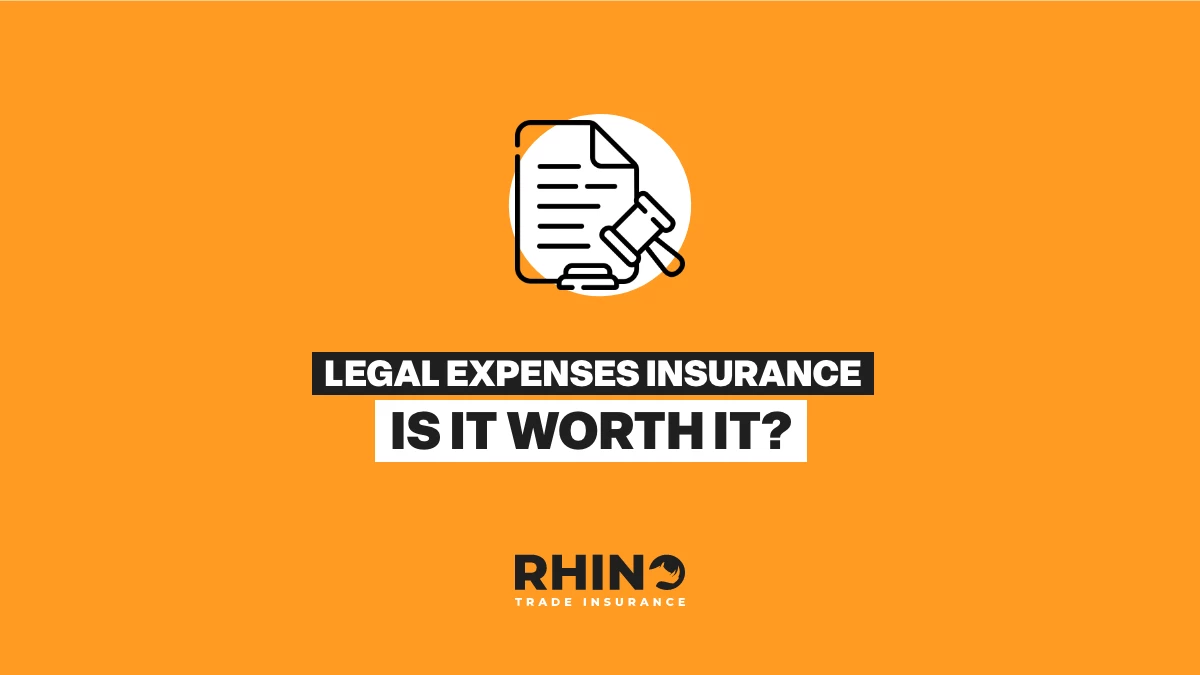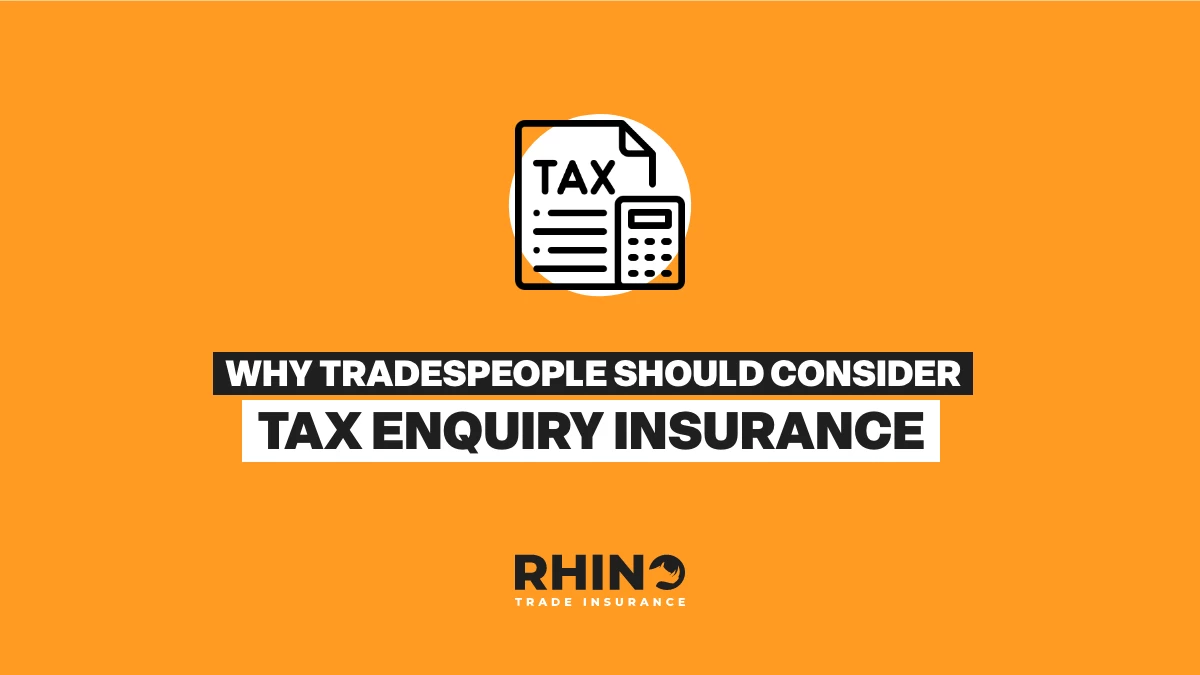If you’re a self-employed contractor, then you need General Liability Insurance. It will protect your business and secure your reputation within your chosen trade – it can even help keep you on the right side of the taxman.
But what is it? And what level of cover might you need? As usual, Rhino has all the answers, so hold onto your hard hats and let’s dive in.
Understanding General Liability Insurance for Self-Employed Contractors
- Definition and Importance
General Liability Insurance for self-employed contractors goes by many names. Some call it Business Liability Insurance, others Comprehensive General Liability Insurance or self-employed builders insurance, and here in the UK we know it as Public Liability Insurance.
They’re all just names for the same type of cover, which is essentially contractor liability coverage. This insurance is there to protect small business owners and independent contractors from claims made by third parties for injury and/or property damage that have occurred as a result of their work.
General Liability Insurance covers claims for injury and/ or property damage that have happened to third parties as a result of a business owner’s negligence, or an accident they have caused. It doesn’t matter if you’re a contractor or subcontractor, or whether you’re a sole trader or director of limited company – if you’re self-employed and you cause someone – or their property – to come to harm, then it comes under the scope of General Liability Insurance coverage.
A third party can be just about anyone – with one exception. If the claim comes from one of your employees, then it won’t be covered by General Liability Insurance and a separate policy called Employer’s Liability Insurance must be taken out instead.
How Self-Employed Contractors Benefit from General Liability Insurance
- Protection Against Legal Claims
As a tradesperson, your jobs carries with it a variety of risks and hazards which make it pretty likely that there will be an adverse incident at some point. You may be working with tools and machinery, you may be working at height, or you may be using paints, adhesives or chemicals. Jobs like scaffolder, builder, bricklayer and electrician come with some serious risks to both people and property.
Even seemingly ‘safe’ trades like carpet cleaning will come with a huge range of things that can go wrong, from accidentally using the wrong product and damaging a carpet to knocking something over and breaking it in a customer’s home. You could also inadvertently cause injury – someone tripping over your wet vac cord, for example. These things seem trivial, but they happen every single day up and down the UK, and we’re sure you’ve heard that well-known saying, “Where there’s a blame, there’s a claim!”
These claims come with financial liability. So, that broken item, the damaged carpet and the broken leg will all come with a bill attached. If you have General Liability Insurance in place, the financial liability passes from you to your insurer, meaning you’re protected from the potentially huge costs that claims bring.
The costs in General Liability Insurance claims are made up of things like medical bills, repair or replacement of property, legal fees and compensation and damages for injury or distress.
- Better Reputation and More Work
It’s a contractual requirement of most work contracts that you have General Liability Insurance in place. This means that having it will immediately mean you win more work and open your business up to better opportunities.
Further, having General Liability Insurance will mean potential customers can see that you take liability seriously and are able to come up with the finance needed to smooth things over should anything happen. True, it’s technically possible for contractors and self-employed tradespeople to settle general liability claims on a case-by-case basis, but it’s well-known that claims can be very costly and disruptive to a self-employed business, so having General Liability Insurance is much preferred. Having it will boost your credibility within your trade and help attract new customers, too.
- Can Help Protect Your IR35 Status
As a self-employed contractor who works on projects, you’re conscious that HMRC need to be convinced that you’re genuinely self-employed and not an employee in disguise. Holding General Liability Insurance will help prove to HMRC that you’re a legitimate contractor business should they need further proof (as is common).
Costs and Considerations of General Liability Insurance
- Factors Influencing Premiums
Your premium amount will be unique to you and your business. This is because all contractors are different, and their level of risk will need to be individually assessed. Some factors that influence the cost of your General Liability cover will include the size of your contractor business, your turnover, the number of employees you have, the nature of the work you do and the area you operate out of.
Rhino’s amazing flagship Liability cover starts at just £6.07 per month. Rhino has some of the lowest premiums around when it comes to liability protection for craftsmen and women, and we work closely with underwriters and industry partners to design policies which include all the coverage a self-employed contractor needs.
- Know How Much Cover to Get
General Liability Insurance with Rhino can cover you from £1M up to £5M, with £10M indemnity limit available on request. The cover limit you need will depend on a few things, such as the size of your business and the risks involved. Often, contracts will stipulate the cover limit you should have, so make sure you have adequate cover for the type of work you want to do. Rhino’s quick quote engine should point you in the right direction – simply add a few basic details about your business and you’ll get a suggested quote in moments.
- Understanding limitations and exclusions
As with any insurance policy, you should have a good understanding of what it will and won’t cover. For example, if the damage is incurred overseas, or through anything caused by or arising from advice, design or specification you provided for a fee (you’d need Professional Indemnity Insurance to cover that). Remember, General Liability Insurance won’t cover claims brought against your business by employees (that’s why Employer’s Liability Insurance is also required). Be sure to read the Exclusions section of your Policy Wording document thoroughly.




